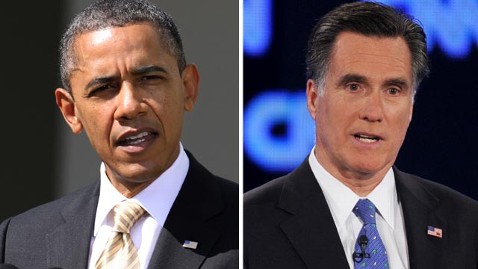
Although it had been clear for months, the United States’ Republican presidential nomination was not finalized until last Tuesday. As expected, Mitt Romney won. Barack Obama now has his official opponent. And now: Who is Mitt Romney? What does he think of Mexico? What will his policies toward Mexico look like? Of the two candidates, who would be better for us?
We know that the last three presidential elections were determined by the Latino vote. This time there will be 12 million Latinos who can vote in November. In recent years, they have stood with Obama — even though immigration reform has been pushed to the bottom of the agenda. We know the current Democratic president’s policies in all aspects relating to Mexico, from security to tourism. We know him as a president and as an individual. We have been affected by the difficulties that he has encountered in his first term, as he struggled to govern without the support of the majority of Congress. The Republican opposition in Congress has frozen the bulk of his proposals. We also know that it is very likely that he could implement his projects more easily in a second term, which would, most likely, allow us to see the real Obama at long last: the Obama who fell to the legacy of Bush, the global crisis and the lack of internal consensus.
At this point, we know very little about the Republican candidate. We do not know Mitt Romney. He is a man of the right, both in business and in law. Beyond that, he has deeply ingrained family values. Yet, he was the least accepted by the tea party among all of his Republican rivals for the nomination. He has been in a stable marriage since 1969 and has five children and 16 grandchildren. He is a Mormon. Romney is the son of American parents, but he has quite an interesting history. His father was born in Mexico. The elder Romney could be considered Mexican by law, but the possibility has never been seriously considered — he was born here for strictly circumstantial reasons. His grandparents lived in the country briefly. At the age of five or six, he returned to the United States and grew up there. He never maintained a connection with Mexico and, as opposed to George and Laura Bush — or Bill Richardson — he has no family ties in Mexico. We expect that Mitt Romney will use this connection to approach the Latino community and potentially win a greater portion of the vote. He says that he will not use this tactic, but in politics anything goes. He has a very definite vision about what the role of the leadership in the U.S. should be.
Now then, what has he said about the topics that are of concern to Mexicans? What has he said, and what has he proposed? In the case of immigration, he has emphasized that he is not against immigration, as he has been accused. He maintains that he favors it, but only by legal means. The U.S. is a country of immigrants, he says. What has not changed is that he intends to penalize employers by means of a card, E-verify. He claims that it will enable them to identify which of their employees are illegal and to deport those who are. He speaks of a program of “self-deportation,” which is unlikely — he expects that thousands of illegal immigrants will voluntarily return to their places of origin. He is concerned that the border is too porous, since it opens the possibility that illegals will enter the U.S. and even carries the risk that many of these immigrants will be members of organized crime — or even terrorists. He seeks the admission of immigrants who are better prepared, with better academic and work credentials. In turn, he proposes protection for legal immigrants and offers support for the 4.5 million who hope to enter legally. He maintains that he has no interest in legalizing any illegal immigrants, as they represent “magnets” that encourage illegal immigration. So far, he has opposed amnesty. On border security, he wants to finish the high-tech wall and rely on Border Security personnel to secure the stability of the southern border. On security, Romney wants to continue with the Merida Initiative, drawing upon many of the measures implemented in Colombia. He will prioritize the issue of the current high level of violence and the role played by organized crime along the border. He intends to not only maintain but, indeed, to intensify the policies of military cooperation, training and development of intelligence. On commerce, he is in favor of free trade and intends to continue with NAFTA. He wants a well-established relationship with Mexico, but improved to the extent that he can count on higher-level institutions.
These are still very broad ideas. Mexico should tend to its relationship with both candidates to avoid the misunderstandings that have come up in the past.

Leave a Reply
You must be logged in to post a comment.